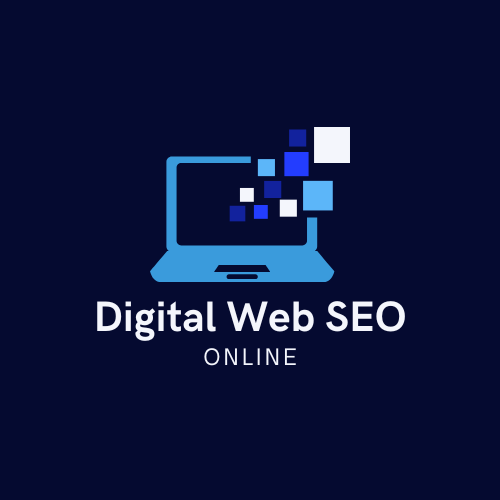Digital marketing is one of the fastest-growing fields, and the demand for skilled professionals continues to rise. Whether you’re an experienced marketer or a fresh graduate, acing a digital marketing interview requires a strong understanding of key concepts, tools, and strategies. In this guide, we explore frequently asked questions and tips for responding confidently.
1. General Questions on Digital Marketing Foundations
- What is digital marketing?
Start by defining digital marketing as the process of promoting products or services through online channels such as social media, search engines, email, and websites. Highlight the various forms it encompasses, including SEO, SEM, content marketing, and PPC. - Types of Digital Marketing
There are various types, such as SEO (Search Engine Optimization), SEM (Search Engine Marketing), content marketing, social media marketing, email marketing, and affiliate marketing. Discussing each type briefly provides a well-rounded answer to this common question.
2. SEO and SEM-Related Questions
- Explain SEO and why it’s important.
SEO, or Search Engine Optimization, is essential for increasing website visibility in search engine results. Emphasize on-page and off-page SEO, explaining techniques like keyword usage, backlinking, and content optimization. - Differentiate between SEO and SEM.
While SEO is focused on organic search results, SEM (Search Engine Marketing) includes paid advertising. This question tests the candidate’s understanding of paid versus organic strategies. - Describe the role of keywords in digital marketing.
Keywords are pivotal to digital marketing, as they guide SEO and SEM strategies. Explain their role in targeting user intent and the importance of keyword research for improving search engine rankings.
3. Social Media Marketing Questions
- How do you measure the success of a social media campaign?
Answer by mentioning metrics such as engagement rate, impressions, click-through rate, and conversion rate. Tools like Google Analytics, Hootsuite, and Sprout Social are also essential for tracking these metrics. - What are your favorite social media channels for brand marketing, and why?
Candidates should consider the audience demographics of each platform, such as Facebook’s broad reach or Instagram’s popularity among younger audiences. Mentioning current trends, like short-form videos on TikTok and Reels, can demonstrate awareness of social media innovations.
4. Content Marketing Questions
- What makes for effective content marketing?
Emphasize the need for valuable, relevant, and consistent content that engages a target audience. Quality content should also be optimized for SEO to improve its visibility on search engines. - What is a content marketing funnel?
Describe how content marketing guides customers through stages of awareness, consideration, and decision-making. A successful strategy will include content tailored to each stage of the buyer’s journey.
5. Email Marketing and PPC
- What are some best practices for email marketing?
Highlight the importance of personalized messaging, segmentation, compelling subject lines, and A/B testing. Mention the use of platforms like MailChimp for managing and automating campaigns. - Define PPC and explain how Google AdWords works.
Pay-per-click (PPC) advertising charges advertisers each time an ad is clicked. Google AdWords (now Google Ads) is a popular PPC tool, allowing businesses to bid on keywords for top placement in Google’s search results.
6. Tools and Software in Digital Marketing
- What digital marketing tools do you use?
Discuss popular tools like Google Analytics for web analytics, SEMrush and Ahrefs for SEO, and Buffer for social media management. This is a chance to showcase familiarity with industry-standard tools. - How do you keep up with digital marketing trends?
Mention resources such as industry blogs (Moz, HubSpot), podcasts, webinars, and networking events that help stay updated on trends and algorithm changes.
7. Analytical and Problem-Solving Questions
- How do you handle a drop in website traffic?
Explain a process that includes checking for Google algorithm updates, analyzing changes in keyword rankings, reviewing website structure and content, and assessing backlink quality. - What is your approach to improving conversion rates?
Mention methods like optimizing landing pages, improving call-to-action (CTA) buttons, and conducting A/B testing. Emphasize the importance of user experience (UX) and targeted messaging.
8. Latest Trends in Digital Marketing
- What are some recent digital marketing trends?
Current trends include AI-driven marketing, voice search optimization, and the rise of video content, particularly short-form videos. Staying updated on these can demonstrate that you are proactive in the rapidly evolving digital space. - How does AI impact digital marketing?
Artificial intelligence influences digital marketing through automated customer service (e.g., chatbots), personalized content recommendations, and predictive analytics. Mentioning these advancements can highlight your understanding of emerging technology.
9. Behavioral and Situational Questions
- Describe a challenging digital marketing project you managed.
This question aims to evaluate problem-solving skills and resilience. Describe the issue, your approach, and the outcome, focusing on measurable results and lessons learned. - Where do you see yourself in five years in digital marketing?
Candidates should express career aspirations, such as leading a team, specializing in a niche, or advancing their technical skills, to show commitment to long-term growth.
Conclusion
Preparation is key to excelling in a digital marketing interview. By reviewing these questions and practicing clear, concise answers, candidates can build confidence and demonstrate their expertise. Remember to adapt your responses to align with the company’s specific needs and highlight how you can contribute to their success.
Also Read: Megacaching.com: Caching Solutions and Research Insights









